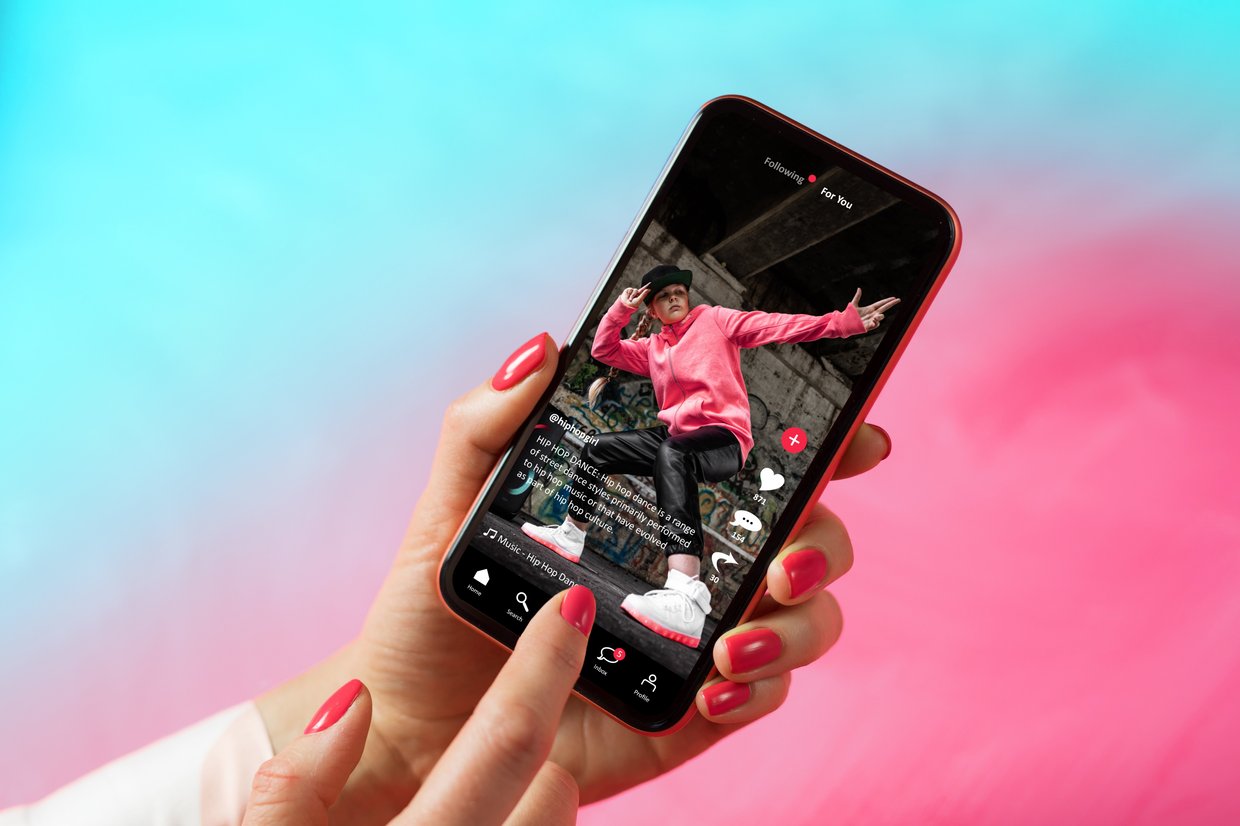‘
For years, Facebook and Instagram have dominated our social media lives and, indeed, how we behave and interact across the internet. Facebook Meta has come to shape our online lives, and its influence is so vast that bodies such as the European Union and the US congress spend huge amounts of time and money working out how to exert control over it. But for all Meta’s dominance of our time and attention – and the ad dollars of millions of advertisers worldwide, its confidence appears to have been wobbled by an ‘upstart’ – TikTok. The Chinese-owned video-sharing platform soared in popularity during the pandemic and has morphed from a lip-synching and dancing app to one that creates trends and forges deep connections between creators and users, keeping the latter engaged video after video. And now, the cracks are starting to show at Facebook, which has just reported its first-ever decline in daily active users (DAUs). The battle between Meta and TikTok is on.
Meta – the reigning monarch
Facebook’s dominance of the social media industry is still undisputed. In Q4 of 2021 it boasted 2.9bn monthly active users – not far off half the Earth’s population. Meta, Google and Amazon together accounted for more than 74% of global digital ad spend in 2021 – which is more than 47% of all money spent on advertising in that period. Meta’s share of the digital ad market is 23.8%.
But there are signs of trouble ahead for the social media giant – and signs that it is nervous too. It is facing a challenge in terms of both user numbers and advertising, reporting their first-ever quarterly decline in DAUs in the fourth quarter of 2021. Facebook lost around 500,000 daily users in the last three months of 2021. The number of monthly active users on Facebook stayed relatively flat, while growth across Meta’s other platforms – WhatsApp, Messenger and Instagram – was modest. Furthermore, Buzzfeed found that audiences are spending less time on Facebook. This decline in time spent on Meta’s platforms puts direct pressure on ad spend. That pressure is exacerbated by the economic pressure that many small businesses are facing as the world emerges from the Covid-19 pandemic; these small businesses make up a large part of Meta’s advertiser base and, if they are having to cut down on their ad spend, Meta’s ad revenue will inevitably suffer. Insider Intelligence has lowered its forecast or Meta, predicting that the company’s revenue will decrease by $2.5 billion in 2022 and 2023. The company’s share of digital ad spend will fall under 22% by 2023 – down from 25% in 2020.
TikTok – the pretender to the throne
The fact is, those daily users and ad dollars are going somewhere. In a rare direct nod to competition (quite possibly because of the various antitrust lawsuits that Meta is facing), Mark Zuckerberg emphasized the threat Meta faces from platforms such as TikTok and YouTube, as people are increasingly drawn toward short-form video content.
YouTube has been big for a long time, but TikTok’s ascendancy over the last few years has been meteoric. It got its billionth user in 2021, just four years after its global launch; that’s half the amount of time it took Facebook, YouTube or Instagram, and three years faster than WhatsApp. TikTok was the world’s most downloaded app in 2020, and in 2021 it became the first app not owned by Meta to cross the 3 billion app download mark. Also in 2021, the typical TikTok user spent an average of 19.6 hours on the app every month – more or less equalling Facebook.
And it’s not just user figures that suggest that TikTok is the one to watch. It is also the most lucrative app globally for in-app purchases. Users spent $850 million on TikTok’s virtual ‘Coins’ currency in the first quarter of 2022. What’s more, the company’s unique approach to social commerce, which involves pairing marketers with content creators, drives huge demand for products: the #TikTokMadeMeBuyIt hashtag has had over 11.5 billion views.
All this is propelling TikTok’s ad revenue: in 2022, it is expected to bring in $11.64 billion – that’s triple its 2021 figure and more than Twitter ($5.58 billion) and Snapchat ($4.86 billion) combined. It’s still small in terms of share of the digital ad market – but Meta evidently still feels threatened.
Meta and TikTok: A play for the crown
TikTok’s huge growth in the last few years, its clever social commerce strategy and the fact that it is winning the battle for the hearts, minds and attention of under 25-year-olds (and indeed under-18s) – which happens to be where Facebook is suffering its most significant declines – means that Meta is paying attention and reacting accordingly. The tech giant needs to maintain its ad revenue until the metaverse – into which it has invested heavily – takes off (if it takes off). It does not want an ‘upstart’ like TikTok snapping at its heels.
Meta’s reaction to the TikTok threat seems to be “if you can’t beat ‘em, join ‘em”. Its Reels product is a direct rival to TikTok’s short-form video format. Mark Zuckerberg admitted in an earnings call that Reels is a major part of Meta’s TikTok defence strategy. They are also exploring the introduction of virtual coins on Facebook and Instagram, nicknamed ‘Zuck Bucks’. It is, however, interesting that Meta’s investment in these projects has been limited – especially given that Zuckerberg has form for investing in projects that he does believe in, such as the metaverse.
However, Meta is not just using product innovation or imitation in order to keep the TikTok threat at bay. It was revealed recently that it hired a Republican consulting firm in the US to seed public distrust around TikTok. Op-ed and letters to the editor in various local publications have expressed concern that TikTok poses a danger to American children – particularly in relation to the fact that it is Chinese-owned and holds an extraordinary amount of data on teenagers across the world. Meta has defended the campaign and its actions, saying that it believes that all platforms should face scrutiny consistent with their size and success. The eagle-eyed have noted, however, that the thought-pieces in question have criticized trends that have gone viral on TikTok – but originated on Facebook and Instagram.
The political angle
Given Meta is a huge American tech company, and TikTok a huge Chinese one, it’s impossible to discuss this matter without touching on global politics. There is a tendency in the West to see the West as a bastion of democracy, free speech and freedom – and to see the ‘rest of the world’ but particularly China and Russia as restrictive, non-democratic and, in the case of Russia, outright aggressive. The fact that TikTok is Chinese owned may well have an impact on its future in the West. The app is already banned in India, and many other countries have considered banning it; the Trump administration in the US toyed with the idea of forcing the sale of the American business to an American company, but this idea was dropped after Trump lost the 2020 election. TikTok collects an enormous amount of data – it is, for example, using facial and voice recognition, even in the US. The fear is that the governing Chinese Communist Party (CPC) will use this very private data to its advantage – and given that they are closely involved in all major Chinese companies, it’s naïve to believe they are not doing this.
That said, the West also has access to a staggering amount of data. The US can access all data that passes through servers in the US, and the data offered by data brokers from cookie and app data gives anyone who wants it far more intelligence on our behavior than we could reasonably expect them to have – and both the West and the East can use and abuse that data.
These data flows are likely unsustainable in the long-term – individuals and regulatory bodies will demand more privacy in the future, even if market changes are slow to catch up. We are already seeing increased scrutiny on Meta in the US, the EU and beyond – TikTok will undoubtedly not be immune to it.
So – is the future TikTok’s?
While Meta is still by far the biggest social media company, and has a huge percentage share of the digital ad spend market, dwarfing TikTok’s, it is obviously flustered by TikTok’s success, especially when compared to its own stagnating and even declining figures. Facebook has more users, but TikTok has the attention of the demographic that advertisers most want to target and form a relationship with. Both companies will continue to be scrutinized for how they handle data and privacy – we all know the level of scrutiny that Meta faces, and TikTok – being Chinese-owned – will need to get used to a similar level of enquiry.
For the last couple of decades, Facebook has had huge influence on how people across the world behave on the internet and even off it. It has changed how we interact, how we discover news, brands and products, even how we speak. But with young people devouring short-form video, interacting with creators and buying socially, it looks like the next two decades could well belong to TikTok. And marketers – particularly, but not exclusively, those who want to target a younger audience – should make plenty of space in their marketing plans for the Chinese-owned platform.
Header image: Kaspars Grinvalds/Shutterstock




.png)




